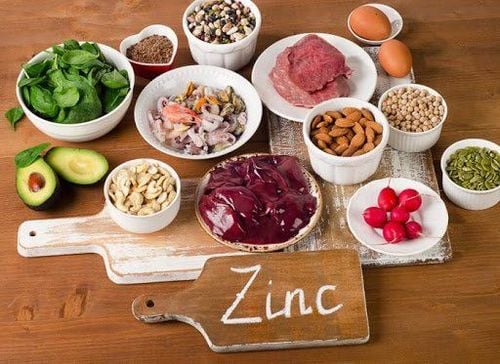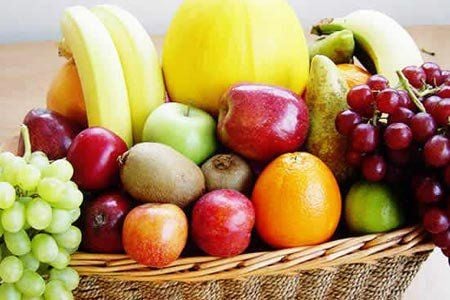1. Developmental Aspects of a 7-Month-Old Infant
At this age, the infant typically demonstrates the ability to sit unassisted and may express interest in using a sitting support device. Additionally, the child may begin to engage in vocalizations with caregivers, showing more dynamic corporal responses, and exhibiting greater muscular and skeletal development. Auditory and cognitive functions are becoming increasingly refined, allowing the infant to respond to music and sounds more effectively than before.
Between 7 months and onward, the growth in terms of height and weight becomes more conspicuous. Consequently, many caregivers query the appropriate weight and height for their 7-month-old infant, expressing concerns regarding the possibility of undernutrition.
In this developmental stage, the average weight for male infants is approximately 7.4-9.2 kg, with a height ranging from 67-71 cm. For female infants, the average weight is between 6.8-8.6 kg, with a height ranging from 65-69 cm. However, compared to prior stages, the rate of physical growth in 7-month-old infants slows down to approximately 0.4-0.7 kg per month.
From a cognitive perspective, the display of emotions and affections becomes more pronounced in 7-month-old infants. Many infants begin to show signs of preference and aversion, especially concerning activities such as feeding, playing, and sleeping. Furthermore, they do not hesitate to express emotions such as joy, irritability or discomfort towards specific situations.
Most infants at 7 months enter the dental eruption phase, which can induce discomfort and sometimes mild fever. The process of teething can lead to sore gums, resulting in decreased appetite, fatigue, irritability, or fussiness. In some instances, infants may experience weight loss or prolonged diarrhea during this period.
Consequently, caregivers should provide more attentive care, maintaining close contact with the infant while ensuring a nutritious diet that supports growth and aids in alleviating the discomfort associated with teething.

2. What fruits can a 7-month-old child eat?
Before exploring the types of fruits suitable for a 7-month-old child, parents should equip themselves with knowledge regarding essential micronutrients crucial for holistic development:
- Zinc: Zinc is a nutrient that enhances the immune system's strength, aids in wound healing, and promotes cellular growth. It can be found in foods such as beef, shrimp, sesame seeds, and pumpkin.
- Iron: Iron is vital for nourishing the blood cells and supporting comprehensive brain development. It is present in various red meats, dark green vegetables, and certain legumes.
- Vitamin D: Vitamin D is typically supplemented through foods such as salmon, tuna, cow's milk, and yogurt. Additionally, providing sunlight exposure in a safe manner can facilitate efficient calcium absorption.
- Calcium: At 7 months, infants can obtain calcium from foods like eggs, green vegetables, legumes, and dairy products, which are beneficial for dental and osteological development.
- Vitamin C: Vitamin C aids the child's body in preventing harmful pathogens and minimizing the incidence of viral infections.
From the age of 6 months onwards, breast milk remains a significant nutritional source; however, it may no longer provide sufficient nutrients for the child's growth. Consequently, a suitable complementary feeding regimen is essential at 7 months to augment the necessary dietary intake. Fresh fruits should constitute an integral part of this regimen. Therefore, which fruits are appropriate for a 7-month-old just embarking on complementary feeding?
When beginning the process of introducing solids, parents may offer fruits that are commonly consumed in the household in small quantities. Various methods exist for introducing fresh fruits, with two prevalent approaches being baby-led weaning and traditional weaning.
Accordingly, to address parental inquiries regarding what fruits a 7-month-old can consume, here are several fresh fruits and their health benefits:
- Carrots: Rich in beta-carotene, a precursor to Vitamin A, adequate carrot intake can significantly enhance visual development in infants.
- Sweet Potatoes: This food is abundant in carbohydrates, dietary fiber, beta-carotene, and Vitamin B.
- Broccoli: A rich source of Vitamin C, calcium, folic acid, and iron.
- Apples: Among the fruits suitable for 7-month-olds, apples are noteworthy for their carbohydrate content, which provides energy and a high fiber concentration that aids digestive health.
- Bananas: Another answer to the question of which fruits a 7-month-old can eat. Bananas provide a substantial energy source and are rich in potassium. Furthermore, the fiber content may alleviate constipation during this developmental stage.
- Papaya: A common fruit known for its high Vitamin C, folate, beta-carotene, and various other minerals.
- Avocado: This fruit is rich in several vitamins such as B, C, and E, as well as potassium and unsaturated fats. Including avocado in the complementary diet significantly benefits brain development.
- Other fruits such as strawberries, watermelon, citrus fruits, kiwi, and mangoes are excellent sources of Vitamin C for a 7-month-old.
To prepare various fresh fruits, parents can puree or grate them (especially mangoes, avocados, bananas, papayas, apples, grapes, etc.). Alternatively, if the child has developed adequate chewing skills, direct feeding is advisable, or the fruit can be mixed into yogurt. The recommended daily intake of fresh fruit for a child is approximately 60-120 ml of fruit juice or an equivalent of five tablespoons, with the possibility of increasing this quantity if the child shows interest.

3. Considerations for Introducing Fruits to a 7-Month-Old Child
In addition to the question of what fruits a 7-month-old child can consume, there are several considerations parents should keep in mind when incorporating fruits into their infant's diet:
- At the age of 7 months, children are just beginning to practice chewing, bringing food to their mouths, and swallowing. Therefore, the fruits prepared for them should be soft, easy to chew, and easy to swallow. Parents should avoid force-feeding if the child shows disinterest, allowing for the possibility of reintroducing the fruit at a later time.
- Regardless of the type of fruit offered, parents should introduce only one variety at a time to accurately assess the child’s preferences and to monitor for any potential allergic reactions.
- When introducing fruits to a 7-month-old, it is imperative for parents to observe and supervise the child, ensuring they remain in an upright position. Encouraging interaction and offering praise when the child is attentive can enhance the meal experience, while minimizing distractions such as television or mobile devices. Maintaining the child’s focus on mealtime contributes to a positive experience, strengthens the parent-child relationship, and increases the likelihood of successful acceptance of new foods in the future.
- It is important to note that while the child has commenced complementary feeding at 7 months, breast milk remains crucial to their developmental needs; hence, mothers should continue to ensure adequate daily breast milk intake.
Once parents ascertain which types of fruits are suitable for their 7-month-old, they can formulate a menu to familiarize the child with these fruits, ensuring nutritional needs are met and supporting daily growth and development.
A 7-month-old requires 5 mg of elemental zinc per day to promote appetite, and to achieve optimal height and weight standards. Zinc plays a significant role in numerous biological processes within the body, especially in nucleic acid and protein synthesis. Zinc deficiency in various organs can lead to several health issues, including neurological disorders and increased irritability. Therefore, parents should educate themselves on the importance of zinc and strategies for appropriate supplementary intake for their child.
In addition to zinc, parents should also provide essential vitamins and minerals, such as lysine, chromium, and B vitamins, which support appetite, enhance immune function, and increase resistance to minor illnesses.
Regularly visit the Vinmec.com website for valuable information regarding childcare and family health.
To arrange an appointment, please call HOTLINE or make your reservation directly HERE. You may also download the MyVinmec app to schedule appointments faster and manage your reservations more conveniently.








